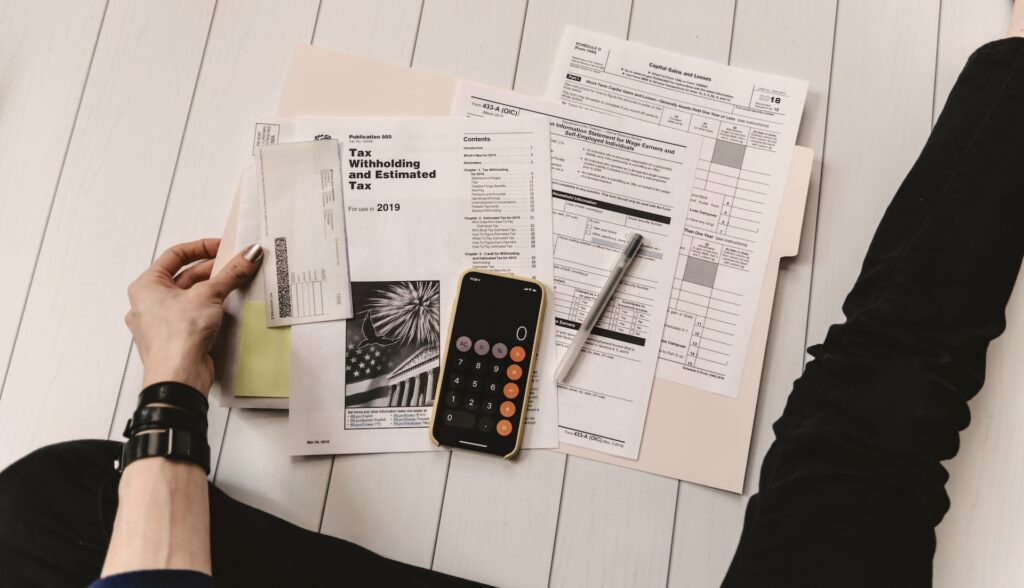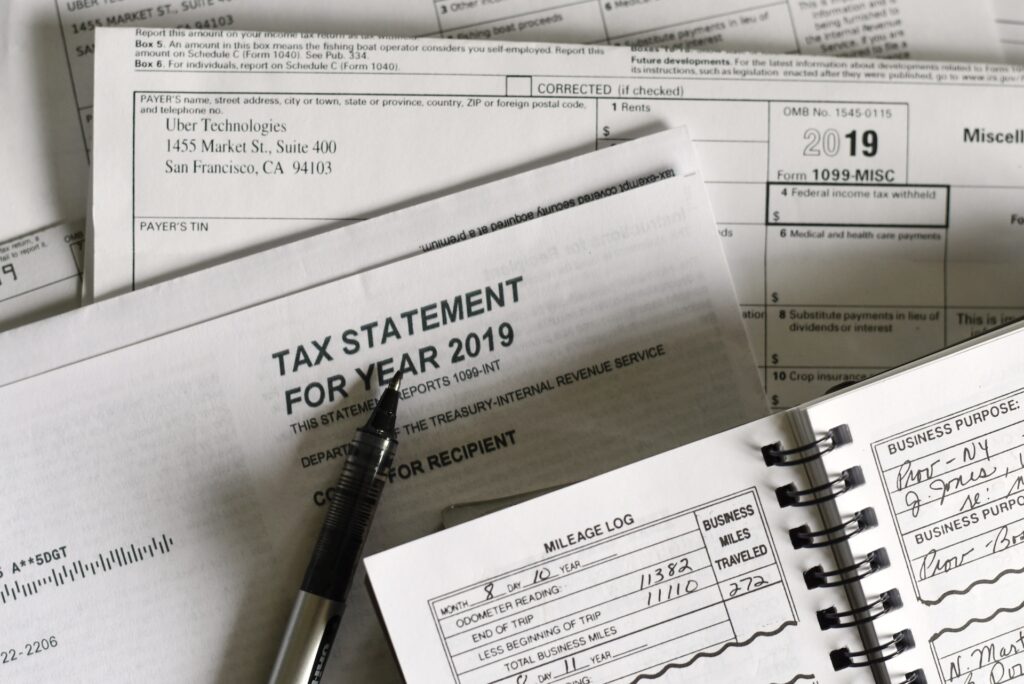
Property Purchase Tax in Spain: A Comprehensive Guide for 2025
Property Purchase Tax in Spain. A Comprehensive Guide for 2025. Learn about current taxes and fees while buying property in Spain because when You’re purchasing property in Spain, it is essential to understand the associated taxes and costs to avoid unexpected expenses. This guide explains the types of property purchase taxes, how they are calculated, and the steps required to fulfill your obligations.
What You Need to Know About Property Purchase Taxes in Spain
When buying property in Spain, you will encounter various taxes that depend on the type of property and its location. In this article, we will explore the primary taxes associated with property purchases in Spain, including Transfer Tax, VAT, and Stamp Duty, and guide you through the steps of paying them.
Key Property Purchase Tax in Spain
Transfer Tax (Impuesto de Transmisiones Patrimoniales – ITP)
The Transfer Tax is a significant cost for buyers of resale properties (second-hand properties) in Spain. This tax is calculated as a percentage of the declared purchase price and varies by region, typically ranging from 6% to 10%. For instance, in Andalusia, the rate can be as high as 7%, while in Madrid, it is capped at 6%. It is important to note that the tax rate may also depend on specific conditions, such as the buyer’s age or whether the property will serve as a primary residence.
Value Added Tax (Impuesto sobre el Valor Añadido – IVA)
Value Added Tax is applied to new properties, including those purchased directly from developers. Residential properties usually attract a VAT rate of 10%, while commercial properties and plots of land are taxed at 21%. This tax is added directly to the purchase price and is typically paid at the time of purchase. For example, a newly built apartment costing €300,000 would incur a VAT payment of €30,000.
Stamp Duty (Actos Jurídicos Documentados – AJD)
Stamp Duty is an additional cost that applies when notarizing the purchase deed. This tax ranges from 0.5% to 1.5% and is determined by the autonomous community where the property is located. For buyers of new properties, the Stamp Duty is often paid alongside VAT.

How Property Purchase Taxes Are Calculated?
The calculation of property purchase taxes in Spain hinges on the declared price of the property:
- For resale properties: The Transfer Tax (ITP) is calculated by applying the regional rate to the purchase price. For instance, if the rate is 8% and the property costs €250,000, the tax will amount to €20,000.
- For new properties: VAT is added to the base price, and Stamp Duty is calculated on the same amount. Using the same example of a €250,000 property, the VAT would be €25,000, and Stamp Duty at 1% would be €2,500.
It is crucial to ensure that the declared price accurately reflects the property’s market value, as undervaluing can lead to penalties.
Examples of Regional Variations in Tax Rates
Spain’s autonomous communities have the authority to set their tax rates, leading to significant regional differences. Understanding these variations is essential for accurate budgeting:
- Andalusia: Transfer Tax rates range from 7% to 10%, depending on the property’s type.
- Madrid: Offers a flat Transfer Tax rate of 6%, making it more favorable for buyers of high-value properties.
- Catalonia: Imposes a standard Transfer Tax rate of 10%, but reduced rates apply to first-time buyers and individuals purchasing energy-efficient homes.
Buyers should consult a local expert to understand the specific tax obligations in their chosen region.
Additional Costs to Consider
In addition to property purchase taxes, buyers in Spain should account for several other costs that can significantly increase the overall expense of buying a property. Being aware of these additional costs upfront will help you plan your budget effectively and avoid unexpected financial surprises. Below are the key costs to consider:
Notary Fees
Notary fees cover the cost of preparing and certifying the public deed (Escritura), which is essential for transferring ownership. These fees vary depending on the complexity of the transaction and the property’s value, typically ranging from €800 to €1,500. The notary ensures that all legal aspects of the sale are documented correctly, and their involvement is a mandatory part of the purchase process in Spain. Higher-value properties or complex agreements may attract higher notary fees.
Land Registry Fees
Once the sale is completed, the property must be registered in the buyer’s name at the Land Registry (Registro de la Propiedad). This ensures that the buyer is recognized as the legal owner and protects their ownership rights. Land Registry fees usually amount to 0.5% to 1% of the purchase price, depending on the property and region. Prompt registration is crucial, as delays can lead to complications in asserting ownership or selling the property in the future.

Legal Fees
Hiring a lawyer is highly recommended to ensure that all legal, administrative, and tax-related aspects of the property purchase are handled correctly. Lawyers typically charge 1% of the property’s purchase price, but the peace of mind they provide is invaluable. They conduct due diligence, verify the property’s legal status, review contracts, and ensure there are no outstanding debts or encumbrances on the property.
Mortgage-Related Costs
For buyers who need a mortgage, additional costs may include bank fees, appraisal fees (tasación), and mortgage arrangement fees. These can range from 1% to 2% of the loan amount. Additionally, you may need to account for life insurance or home insurance policies required by the lender.
Property Survey Fees
While not mandatory, commissioning a property survey is a good practice, particularly for older properties or rural homes. A survey provides detailed information about the property’s condition and can help identify any structural issues. Survey fees typically range from €300 to €1,000, depending on the complexity of the inspection.
Utility Connection Fees and Taxes
For new properties, buyers may need to pay fees to connect utilities such as water, electricity, and gas. These costs vary depending on the location and provider. Additionally, there may be municipal taxes, such as garbage collection fees, that become applicable upon ownership.
Community Fees (for Properties in Developments)
If you purchase a property within a gated community or apartment complex, you may be required to pay community fees (cuotas de comunidad) for the maintenance of shared areas and facilities. These fees can vary widely, depending on the amenities provided, such as swimming pools, gardens, or security services.
Moving and Furnishing Costs
Finally, buyers should consider the costs associated with moving into the property, including hiring movers, purchasing furniture, and any necessary renovations or upgrades. These expenses can vary significantly depending on the size of the property and the buyer’s preferences.
By budgeting for these additional costs and seeking advice from professionals, buyers can have a clearer understanding of the total financial commitment involved in purchasing a property in Spain. Proper planning ensures a smoother transition to ownership and helps avoid financial stress during the process.
How to Pay Property Purchase Taxes?
Paying property purchase taxes in Spain is a critical step in the buying process, and understanding the procedure ensures a smooth transaction without legal complications. Below is a detailed guide to help you navigate this process effectively:
Obtain an NIE (Foreigner’s Identification Number):
An NIE (Número de Identificación de Extranjero) is a mandatory identification number for foreigners in Spain. It is required for all legal, financial, and property-related transactions. To obtain an NIE, you can apply at a Spanish consulate in your home country or at a local police station in Spain. Ensure you complete the application form, provide a copy of your passport, and pay the relevant fee. Without an NIE, you will not be able to complete the property purchase or pay the associated taxes.
Sign the Deed (Escritura) Before a Notary:
The Escritura is a notarized document that formalizes the transfer of property ownership. This step is crucial, as the deed serves as the basis for calculating the taxes owed. During this process, the notary will verify the terms of the sale, ensure the property has no outstanding debts, and confirm the identities of the buyer and seller. The deed signing is typically attended by both parties and their legal representatives.
Pay the Applicable Taxes
- For ITP (Transfer Tax): If the property is a resale, you must complete a self-assessment form (Modelo 600) and submit it to the regional tax office. The payment must be made within 30 days of signing the deed. Ensure the declared purchase price aligns with the market value to avoid penalties for undervaluation. Payment can typically be made at a bank authorized by the tax office.\n
- For VAT and AJD (Value Added Tax and Stamp Duty): These taxes apply to new properties purchased directly from a developer. VAT and AJD are usually included in the purchase agreement and are paid to the seller, who then transfers the amounts to the tax authorities. The VAT is calculated on the purchase price, while AJD is based on the notarized deed’s declared value.
Work with a Lawyer and Accountant
To streamline the process and ensure accuracy, many buyers choose to work with a local lawyer and accountant. These professionals can handle much of the administrative work on your behalf, including:\n\n- Obtaining your NIE.\n- Preparing and submitting tax forms.\n- Ensuring all payments are made correctly and on time.\n- Coordinating with the notary and tax office.\n\nRelying on experts not only reduces stress but also minimizes the risk of errors that could lead to penalties or delays.

Additional Administrative Steps
After paying the taxes, you must register the property in your name at the Land Registry (Registro de la Propiedad). This step confirms your legal ownership and protects your rights as the property owner. Ensure all taxes are paid before proceeding, as unpaid taxes can delay registration.
Documentation and Receipts
It is essential to keep copies of all documents and receipts related to the tax payments. These include:\n\n- Proof of payment for ITP, VAT, and AJD.\n- The signed and notarized deed (Escritura).\n- Your NIE certificate.\n- Any correspondence with the tax office or your legal advisor.
Tax Reliefs and Exemptions
Certain buyers in Spain may benefit from reduced tax rates or exemptions, making property purchases more affordable under specific circumstances. Understanding these reliefs can help you plan your investment and reduce costs effectively. Below are some common scenarios where tax reliefs apply:
First-Time Buyers
Many regions in Spain offer discounted Transfer Tax (ITP) rates to individuals purchasing their first home. These incentives are designed to make homeownership more accessible, particularly for young professionals and families entering the property market. The exact reduction depends on the region and the buyer’s eligibility, but it can significantly lower the overall tax burden.
Young Buyers and Large Families
Young buyers, typically those under 35 years of age, often qualify for reduced tax rates as part of regional initiatives to support younger generations in securing housing. Similarly, families with three or more children (considered large families in Spain) may benefit from preferential tax rates or exemptions. These measures aim to alleviate financial pressures on growing families, particularly when purchasing a primary residence.
Energy-Efficient Properties
As part of Spain’s commitment to sustainability, many regions offer tax discounts for homes that meet specific energy efficiency standards. Properties with certifications such as high energy performance ratings or those incorporating renewable energy systems may qualify for these incentives. Buyers who prioritize environmentally friendly properties can not only reduce their tax obligations but also benefit from lower long-term utility costs.
Additional Regional Incentives
Beyond these broad categories, individual regions may provide additional tax reliefs based on unique local policies. For example, some regions may offer reduced rates for properties in rural areas to encourage development or for homes within urban regeneration projects. Buyers should investigate the specific tax policies of the autonomous community where they plan to purchase property.
Consequences of Non-Compliance
Failure to meet property tax obligations in Spain can lead to significant and costly consequences. Understanding these potential pitfalls is essential to ensure a smooth and legally compliant property purchase. Below are some of the most common issues buyers face when they fail to comply with tax regulations:
Penalties and Interest
Late payment or underpayment of taxes, such as Transfer Tax (ITP), Value Added Tax (VAT), or Stamp Duty (AJD), can result in substantial financial penalties. These penalties often increase over time, compounded by interest charges on the outstanding amount. In some cases, the longer the delay, the higher the penalty percentage, which can turn a manageable oversight into a significant financial burden.
Registration Issues
Unpaid taxes may prevent the property from being properly registered in the buyer’s name at the Land Registry (Registro de la Propiedad). This can lead to legal complications, as the lack of registration means the buyer does not have full legal ownership rights. In extreme cases, disputes over unpaid taxes could jeopardize the sale altogether or lead to legal claims from third parties.
Potential Legal Actions
The Spanish tax authorities take non-compliance seriously and have the power to initiate legal actions to recover unpaid taxes. This may include freezing assets, garnishing bank accounts, or placing liens on the property. These measures can complicate the buyer’s financial situation and damage their creditworthiness.
Loss of Tax Reliefs and Incentives
Failing to comply with tax obligations may result in the loss of any tax reliefs or exemptions the buyer initially qualified for. For instance, discounts offered to first-time buyers, young buyers, or those purchasing energy-efficient properties may be revoked if the taxes are not paid accurately and on time.
Reputational Damage
In addition to financial and legal consequences, non-compliance can harm a buyer’s reputation, especially for those looking to establish business or personal ties in Spain. It may affect future dealings with local authorities or financial institutions.
Steps to Avoid Non-Compliance
- Engage Professionals: Work with a qualified lawyer and tax advisor who are familiar with local tax laws to ensure all obligations are met.
- Timely Payments: Pay all taxes promptly, ensuring you adhere to the deadlines set by the tax authorities.
- Accurate Declarations: Avoid undervaluing the property to reduce taxes, as authorities often review market values and can impose penalties for discrepancies.
- Keep Documentation: Maintain detailed records of all payments and communications with the tax office as proof of compliance.
Property purchase tax in Spain can be easy if You’ll follow this tips!
Engage a Local Lawyer
A lawyer with expertise in Spanish property law can guide you through the process, review contracts, and handle administrative tasks such as ensuring there are no outstanding debts on the property. They can also assist with obtaining your NIE and managing tax obligations, giving you peace of mind.
Work with a Trusted Real Estate Agent
Partnering with a reputable real estate agent who knows the local market is invaluable. A good agent can help you identify properties that meet your needs and budget, negotiate on your behalf, and ensure that the entire process aligns with local regulations. In regions like Marbella, where the luxury market is complex, a specialized agent can provide insight into tax implications and investment potential, ensuring you make an informed decision.

Understand Regional Differences
Familiarize yourself with the specific tax rates and incentives in your chosen region. For example, Andalusia may offer tax reductions for young buyers or those purchasing energy-efficient properties. Knowing these regional variations can help you plan your budget effectively.
Request a Detailed Cost Breakdown
Before signing the purchase agreement, ask for a comprehensive breakdown of all costs, including taxes, legal fees, notary fees, and land registry fees. This will help you avoid unexpected expenses and ensure you have a clear understanding of the total cost.
Maintain Accurate Records
Keep all receipts and documentation related to the purchase, including proof of tax payments, the signed deed (Escritura), and correspondence with legal or tax advisors. These records are essential for legal compliance and may be required for future transactions or property resale.
By assembling a team of professionals, including a lawyer, accountant, and experienced real estate agency, you can navigate the property purchase process smoothly and confidently. Their expertise ensures that every aspect of the transaction is handled correctly, leaving you free to focus on enjoying your new property in Spain.
Property purchase tax in Spain needs professional knowledge!
Understanding property purchase tax in Spain is crucial for making a successful investment. By familiarizing yourself with the applicable taxes, regional differences, and payment procedures, you can plan effectively and avoid unexpected costs. For tailored advice, it’s always wise to consult a local tax professional or legal expert who can help you navigate the complexities of the Spanish property market.
As a real estate agent specializing in the Costa del Sol region, particularly Marbella, I provide personalized guidance to ensure a seamless property purchase experience. Whether you’re searching for a luxury villa, a beachfront apartment, or a sound investment property, I can help you find the perfect fit. From identifying the ideal property to managing tax obligations and coordinating with legal professionals, I am here to support you every step of the way.
Reach out for expert advice tailored to your unique needs! Property purchase tax in Spain isn’t something strange or devastating. When You’ll buying Your future property You’ll need to follow only few rules to make this without any problems. But from the other side, just remember: property purchase tax in Spain is something that You’ll never skip in Your payments.


